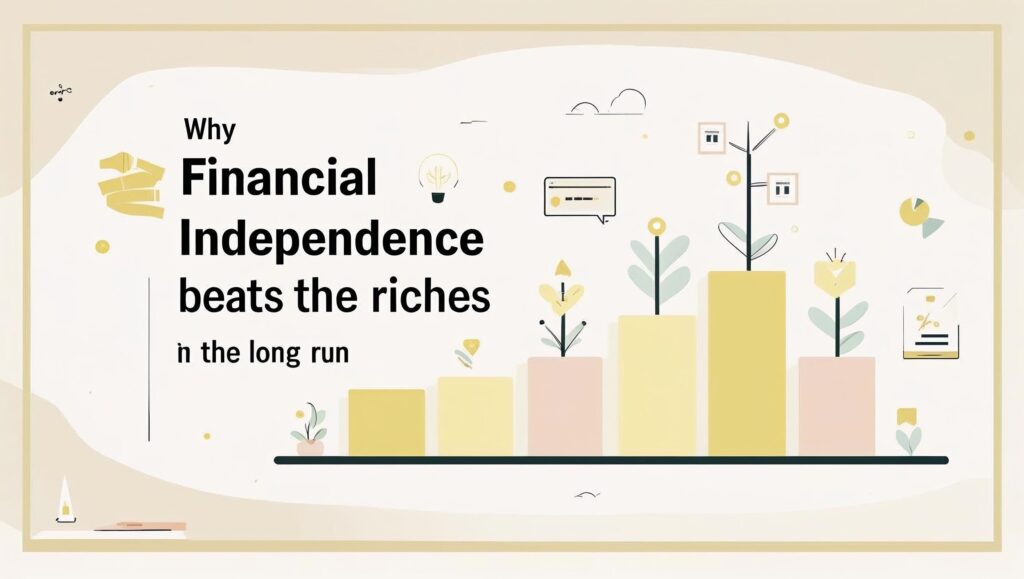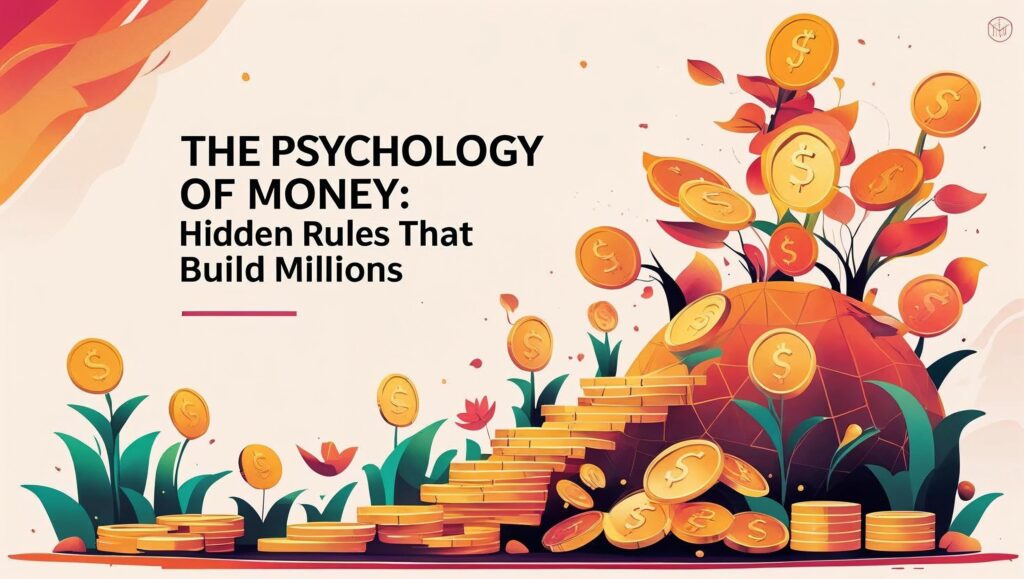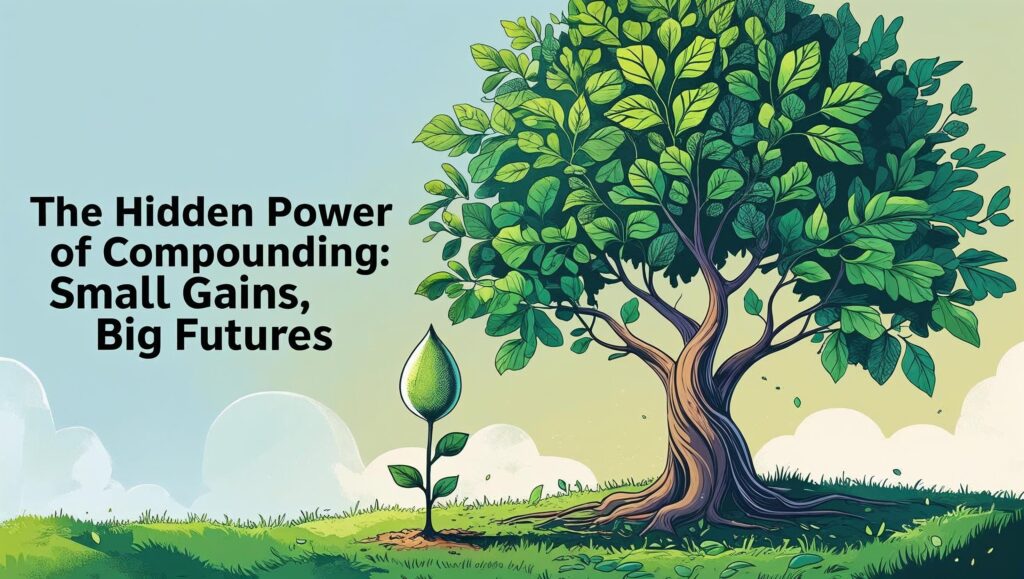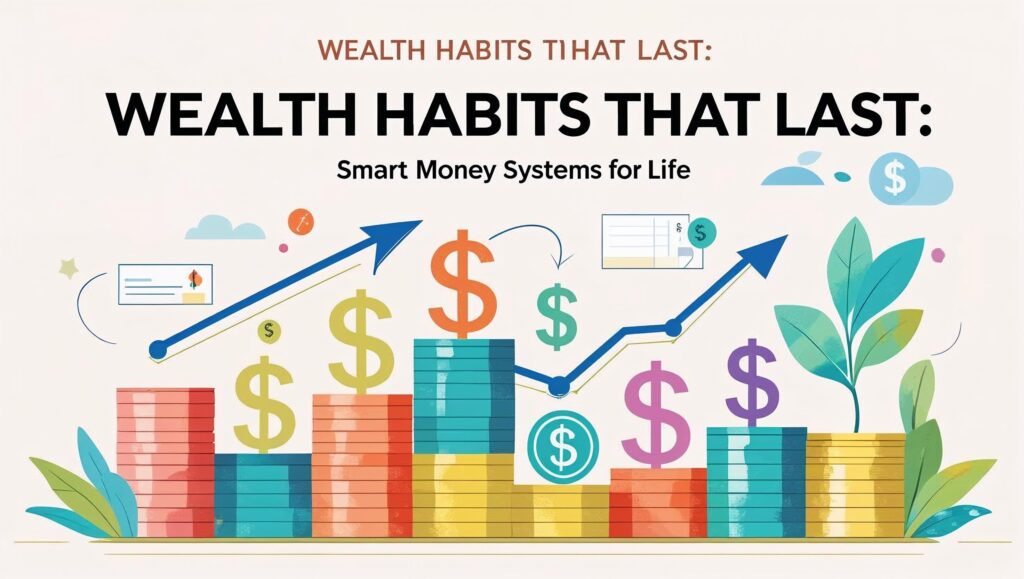
Discover why financial independence matters more than riches – offering freedom, resilience, and lasting happiness beyond material wealth.
Why Financial Independence Beats Riches in the Long Run
In a world that glorifies wealth, flashy lifestyles, and endless consumption, it’s easy to equate riches with success. Luxury cars, sprawling mansions, and designer labels dominate the social definition of “making it.” But as financial thinkers, investors, and everyday people are realizing, being rich doesn’t always mean being free.
In 2025 and beyond, the conversation is shifting. Financial independence, not riches, is emerging as the true measure of wealth. While riches focus on what you own, independence is about what you control — your time, your decisions, and your life.
This blog unpacks why financial independence matters more than riches, the key differences between the two, and how you can build a life that prioritizes freedom over fortune.
Unlocking the True Meaning of Financial Independence
Financial independence isn’t about being the richest person in the room. It’s about reclaiming your time and choices.
When you are financially independent, your income from investments, savings, or passive sources covers your living expenses. That means:
- You can pursue passions without worrying about bills.
- You can spend quality time with loved ones.
- You can say no to projects, people, or work that don’t align with your values.
Unlike riches, which often come with obligations and pressure, independence provides something far more valuable: peace of mind.
Riches may buy you luxury, but independence buys you freedom.
Why Chasing Riches Can Still Leave You Trapped

At first glance, riches look appealing. Who wouldn’t want more money, bigger toys, and higher social status? But beneath the surface, many wealthy individuals remain trapped:
- Lifestyle Inflation: Luxuries quickly become necessities, locking people into high expenses.
- External Validation: Riches often rely on competing for recognition, comparison, and status.
- Stress & Burnout: High-maintenance wealth brings constant pressure to maintain or grow it.
Being “rich” without independence is like running on a treadmill: lots of movement, little progress toward true happiness. Riches may impress the world, but independence impresses yourself.
Financial Independence vs Riches: The Key Differences
Here’s how financial independence and riches truly compare:
| Financial Independence | Riches |
|---|---|
| Driven by freedom & flexibility | Driven by status & validation |
| Reduces stress, increases choices | Often adds stress & obligations |
| Sustainable & resilient | Volatile & temporary |
| Built on systems & habits | Dependent on constant performance |
| Internal fulfillment | External approval |
The takeaway? Independence is sustainable, riches are fragile.
The Seven Stages of Financial Freedom: From Survival to Legacy
Reaching financial independence isn’t something that happens overnight. It’s a journey — a gradual climb where every stage builds a little more security, confidence, and freedom of choice. Think of it like moving up a staircase: each step may feel small, but together they change the way you live.
1. Dependence – Starting Out
In the beginning, most of us rely on someone else — parents, family, or even loans — to get by. At this stage, money decisions aren’t truly yours because survival depends on external support.
2. Solvency – Standing on Your Own Feet
The first taste of freedom comes when you can cover your own essentials without falling into debt. It’s not glamorous, but solvency is proof you’re moving in the right direction.
3. Stability – Building a Safety Net
Once you can pay the bills, the next step is building resilience. An emergency fund covering a few months’ expenses and steady income give you a buffer against life’s surprises. This stage transforms financial stress into financial confidence.
4. Security – Feeling Safe About Money
At this point, debt is under control, savings are growing, and money is no longer the biggest worry in your day-to-day life. Security gives you peace of mind and the freedom to focus on bigger goals.
5. Flexibility – Buying Back Time and Choices
Flexibility is when money starts working for you. Maybe you can afford to take a sabbatical, explore a passion project, or simply choose a job because you love it, not because you need the paycheck. This is where financial progress turns into lifestyle freedom.
6. Independence – Freedom From the Paycheck
This stage is the heart of financial independence. Your investments or passive income cover your living costs, so you no longer depend on a salary to survive. Work becomes optional — and that shift changes everything about how you see time, energy, and opportunities.
7. Abundance – Leaving a Legacy
The final stage is about impact. Beyond meeting your own needs, you can contribute to causes, help others, and create something lasting. Abundance is when money turns into a tool for legacy rather than just lifestyle.
In the end, the path moves from survival → security → freedom → legacy. Real wealth isn’t just about piling up riches. It’s about having the options and flexibility to live life on your own terms — and knowing that every small, consistent step builds toward something extraordinary.
Voices of Experience: Lessons from Financial Thinkers
Financial independence is more than theory — it’s a mindset echoed by the world’s best thinkers:
- Nithin Kamath (Zerodha): “Making money is one skill. Keeping and growing it is another.” His focus is on stress-free living, not luxuries.
- Dhirendra Kumar (Value Research): Warns against chasing early retirement dreams without purpose. Independence is about freedom, not escape.
- Tae (Financial Tortoise): Frames independence as step-by-step progress — from distress to abundance — each stage requiring discipline and patience.
- Wisdom from Legend: Warren Buffett
Warren Buffett’s life is a masterclass in this journey. Early on, he focused on living modestly and reinvesting every gain. That discipline gave him independence long before he was “rich” by today’s standards. Over decades, the magic of compounding wealth pushed him into true abundance, where his influence now extends far beyond investing — including philanthropy on a global scale.
Across perspectives, one theme stands tall: freedom of choice is the ultimate prize.
Why This Matters Now – and Beyond 2025
Today’s world is defined by uncertainty. Inflation, layoffs, volatile markets, and AI-driven disruption make financial independence more urgent than ever.
- Riches can vanish in a downturn.
- Independence is resilient, built on systems and habits.
- Freedom of time is the true currency of happiness.
As we move past 2025, the principle remains timeless: riches are temporary, but independence endures. The real measure of wealth isn’t money, but control over your life.
Summary
- Financial independence > riches — freedom outweighs fortune.
- Riches trap you in stress, status, and lifestyle inflation.
- Independence grows in stages, from solvency to abundance.
- Thinkers agree: Freedom of choice, not wealth alone, defines success.
- Ultimate wealth: Living life on your terms, not chasing others’ approval.
Explore More
- [The Psychology of Money: Hidden Rules That Build Millions]
- [Seven Stages of Financial Freedom Explained]
- [Why Compounding Is the Eighth Wonder of Wealth]
- The Psychology of Money: Hidden Rules That Build Millions
- Compound Interest is The 8th Wonder of The World
- 12 Money Rules I Learned From The Book: The Psychology of Money
FAQs: Why Financial Independence Beats Riches in the Long Run
1. What is the difference between being rich and being financially independent?
Being rich is about having a lot of money or luxury, while financial independence means your money works for you so you can live life on your own terms.
2. Can someone be rich but not financially independent?
Yes, many wealthy people are trapped by high expenses, stress, or debts. Independence is about freedom, not just a big bank balance.
3. Why is financial independence better than chasing riches?
Riches can fade with market crashes, layoffs, or lifestyle inflation. Independence gives lasting peace, security, and control.
4. How do I know if I am financially independent?
If your passive income (investments, savings, rentals) covers your living expenses without needing a paycheck, you are financially independent.
5. What are the seven stages of financial freedom?
Dependence → Solvency → Stability → Security → Flexibility → Independence → Abundance. Each stage gives more control over your life.
6. Can financial independence bring more happiness than riches?
Yes, because it reduces stress and gives freedom of choice — time with family, pursuing passions, or saying no to things you dislike.
7. Is financial independence only for the wealthy?
No, it’s for anyone. It starts with managing expenses, building savings, and investing wisely — not just earning millions.
8. Why do riches often lead to stress?
Riches come with lifestyle inflation, social pressure, and the constant need to maintain or grow wealth, which can create burnout.
9. What role does discipline play in financial independence?
Discipline in saving, avoiding unnecessary debt, and consistent investing is what builds independence step by step.
10. Why is financial independence so important after 2025?
Because uncertainty is growing — inflation, AI-driven job shifts, and market risks. Independence makes you resilient against these changes.




Pingback: The Hidden Power of Compounding: 7 Proven Lessons for a Better Life